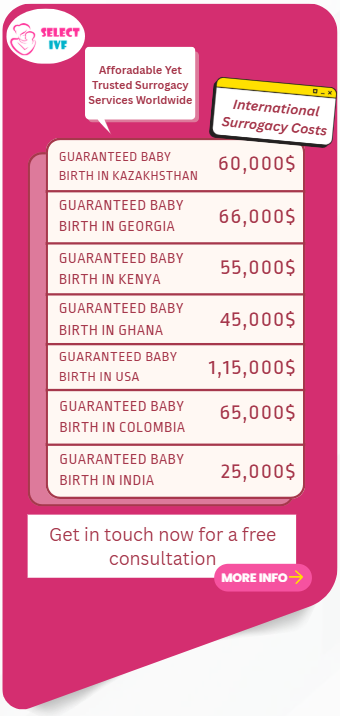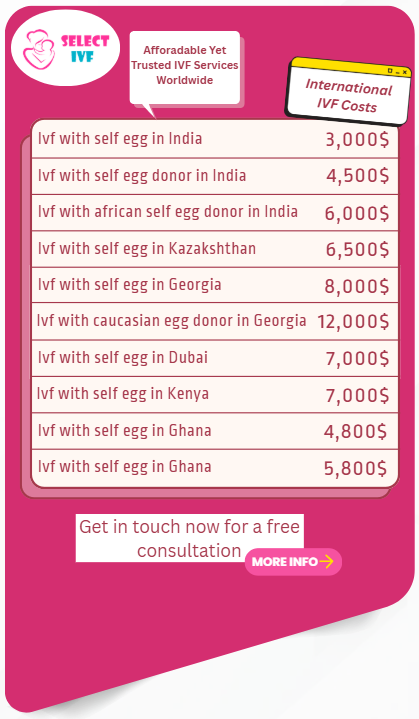The journey through endometriosis and adenomyosis, especially for those seeking fertility solutions like IVF, is a complex terrain. Understanding the interplay between these conditions, fertility, and assisted reproductive technologies is key to informed decision-making. As science and medicine continue to advance, the landscape of fertility treatment evolves Recurrent Miscarriage, offering hope and possibilities to those navigating the intricate path towards parenthood.
Select IVF, with its obligation to greatness and patient-driven approach, remains as a reference point for people confronting the difficulties of endometriosis and adenomyosis. By joining state of the art innovation, experienced experts, and merciful consideration, Select IVF endeavors to transform the fantasy of being a parent into a reality, even despite these perplexing regenerative medical issues.
Defining Recurrent Miscarriage
Recurrent miscarriage is a medical condition characterized by the unfortunate occurrence of three or more consecutive pregnancy losses before the 20th week of gestation. This deeply distressing experience challenges couples aspiring to build their families emotionally and physically. The causes of recurrent miscarriage can vary, including chromosomal abnormalities, uterine structural issues, hormonal imbalances, immunological factors, infections, and chronic conditions. Diagnosis involves a comprehensive assessment, including genetic testing, uterine evaluations, hormonal analysis, and immunological screening.
Addressing recurrent miscarriage often requires a personalized approach, including genetic counseling, lifestyle modifications, surgical interventions, and assisted reproductive technologies like in vitro fertilization (IVF) with pre-implantation genetic testing. Seeking support from specialized clinics such as Select IVF can provide couples with advanced diagnostics and personalized treatment plans, fostering hope in the face of this challenging journey.

Causes of Recurrent Miscarriage
Understanding the causes of recurrent miscarriage is critical to devising a treatment plan. While RPL may sometimes occur without a clear explanation, various factors are known to contribute:
1. Genetic Factors
- Chromosomal Abnormalities: In approximately 2-5% of couples with RPL, one partner may carry a balanced translocation or other chromosomal rearrangement that doesn’t impact their health but can lead to miscarriage.
- Sperm Quality: Poor sperm quality can contribute to chromosomal abnormalities in the embryo, increasing the risk of miscarriage.
2. Uterine Abnormalities
- Structural Issues: Abnormalities like uterine septum, adhesions, or fibroids can hinder a pregnancy from implanting correctly or growing to full term. Congenital anomalies in the uterus are often detected through imaging studies.
- Cervical Insufficiency: Weakness in the cervix can cause it to open prematurely, leading to pregnancy loss during the second trimester.
3. Hormonal Imbalances
- Progesterone Deficiency: Also known as luteal phase defect, a lack of adequate progesterone can prevent the uterine lining from supporting an embryo.
- Polycystic Ovary Syndrome (PCOS): Women with PCOS may have higher miscarriage rates due to hormone imbalances, particularly those related to insulin and androgen levels.
- Thyroid Disorders: Both hyperthyroidism and hypothyroidism can affect pregnancy outcomes, as thyroid hormones are essential for a healthy pregnancy.
4. Blood Clotting Disorders
- Thrombophilia: Conditions like antiphospholipid syndrome (APS) and other clotting disorders increase the risk of blood clots, which can obstruct blood flow to the placenta and lead to miscarriage.
5. Autoimmune Disorders
- Immune System Responses: In some cases, the immune system may mistakenly recognize a pregnancy as foreign, leading to an immune reaction that interferes with embryo implantation and development.
6. Lifestyle and Environmental Factors
Environmental Toxins: Exposure to certain chemicals, radiation, and pollutants can also impact pregnancy outcomes.
Age: As women age, the likelihood of chromosomal abnormalities and miscarriage increases, particularly after the age of 35.
Lifestyle Choices: Smoking, excessive alcohol consumption, and high levels of stress are associated with higher miscarriage rates.
Diagnosing Recurrent Miscarriage
Diagnosis is a crucial step in understanding and addressing recurrent miscarriage. At Select IVF, a comprehensive diagnostic evaluation may include:
- Medical History and Physical Exam: A detailed review of the patient’s medical history, including previous pregnancy outcomes, can offer initial insights.
- Genetic Testing: Karyotyping of both partners can reveal chromosomal abnormalities that may impact pregnancy. Genetic testing of miscarriage tissue, when available, can also be informative.
- Imaging Studies: Ultrasound, hysterosalpingography (HSG), or magnetic resonance imaging (MRI) may be used to assess the uterus for structural issues.
- Hormonal Evaluation: Blood tests can measure hormone levels like progesterone, thyroid hormones, and insulin to detect imbalances.
- Autoimmune and Blood Clotting Tests: Tests for antiphospholipid antibodies, lupus anticoagulant, and other markers of thrombophilia can help identify immune-related and clotting-related causes.
- Sperm Analysis: An evaluation of sperm health, including DNA fragmentation testing, can reveal issues that might contribute to recurrent miscarriage.
This thorough approach to diagnosis enables Select IVF’s fertility specialists to develop a personalized treatment plan tailored to each couple’s unique needs.
Treatment Options for Recurrent Miscarriage
Treating recurrent miscarriage involves addressing the underlying cause, if identified, and supporting the overall health of both partners. At Select IVF, we offer a variety of evidence-based treatments:
1. Genetic Counseling and Preimplantation Genetic Testing (PGT)
For couples with genetic abnormalities, genetic counseling provides critical information on their condition and options for achieving a healthy pregnancy. Preimplantation genetic testing (PGT), performed during an in vitro fertilization (IVF) cycle, allows embryos to be screened for chromosomal abnormalities before transfer, increasing the chances of a successful pregnancy.
2. Uterine Surgery
If structural abnormalities are present, surgical interventions may help:
- Hysteroscopic Surgery: Procedures such as hysteroscopic septum resection or fibroid removal can improve uterine anatomy, providing a more supportive environment for embryo implantation.
- Cervical Cerclage: For women with cervical insufficiency, a cerclage (stitch placed around the cervix) can help keep it closed during pregnancy, reducing the risk of second-trimester loss.
3. Hormonal Therapy
In cases of progesterone deficiency, hormone therapy can be beneficial:
- Progesterone Supplements: Supplementing progesterone during the luteal phase or early pregnancy can improve the uterine lining’s ability to support embryo implantation.
- Thyroid Medication: For women with thyroid disorders, medications that regulate thyroid function are essential to achieving a successful pregnancy.
4. Anticoagulant Therapy
For those with blood clotting disorders, anticoagulant therapy can improve pregnancy outcomes:
- Low-dose Aspirin and Heparin: These medications are often used in combination to prevent clot formation in women with antiphospholipid syndrome or other clotting disorders, ensuring adequate blood flow to the developing fetus.
5. Immunotherapy
In cases where the immune system is involved, treatments may include:
- Intravenous Immunoglobulin (IVIG): Though still under study, IVIG therapy may help modulate the immune response in certain autoimmune conditions.
- Steroid Therapy: Low-dose steroids may be used to suppress immune activity in select cases, especially in women with autoimmune diseases.
6. Lifestyle Modifications
Small lifestyle changes can make a big difference:
- Diet and Exercise: A balanced diet and regular exercise improve overall health, which can positively impact fertility and pregnancy outcomes.
- Stress Management: Mind-body therapies like yoga, meditation, and counseling can be beneficial in reducing stress, which may improve reproductive health.
7. Assisted Reproductive Technology (ART)
In some cases, assisted reproductive techniques like IVF are recommended. With IVF, fertility specialists can monitor the development of embryos closely, selecting the healthiest embryo for transfer. When combined with PGT, IVF allows for the screening of embryos, reducing the risk of miscarriage due to chromosomal abnormalities.
What is the care plan after recurrent miscarriages?
Experiencing recurrent miscarriages can be an emotionally daunting journey, and seeking comprehensive care is paramount for both physical and emotional well-being. Regularly, following repetitive premature deliveries, a careful evaluation is started, including blood tests and sweeps to recognize likely issues. Reference to an expert unit committed to overseeing intermittent unnatural birth cycle is frequently suggested, giving particular skill.
Blood Tests:
Blood tests play a crucial role in evaluating potential complications that may contribute to recurrent miscarriages. These tests assess factors such as blood clotting disorders, polycystic ovary syndrome, and antibodies that can impact placental function. Early identification of these issues allows for targeted interventions.
Uterine Investigations:
The shape of the uterus is a key consideration, as abnormalities can increase the risk of recurrent miscarriage and premature birth. Various methods, including imaging, are employed to assess uterine shape. Depending on the findings, surgical interventions may be recommended to optimize the chances of a successful pregnancy.
Specialized Antenatal Care:
Quality antenatal care tailored to the unique needs of individuals experiencing recurrent miscarriages can significantly influence outcomes. Seeking support from an Early Pregnancy Unit is encouraged, as evidence suggests that it may reduce the risk of further miscarriages.
Progesterone and Recurrent Miscarriage:
Recent research, such as the PRISM trial, has shed light on the potential benefits of progesterone treatment for those with a history of recurrent miscarriage, particularly if experiencing bleeding in the current pregnancy. Progesterone, a hormone crucial for maintaining pregnancy, is administered as vaginal pessaries twice daily. The study demonstrated substantial benefits for women with three or more previous miscarriages, emphasizing the importance of individualized care.
In the PRISM trial:
- For women with no previous miscarriages, no significant benefit was observed.
- Women with 1 to 2 previous miscarriages showed some benefit.
- Women with three or more previous miscarriages demonstrated substantial benefits from progesterone treatment.
- Importantly, the study found no safety concerns associated with progesterone treatment.
- Guidance for Individuals:
- If you’re experiencing early pregnancy bleeding and have a history of previous miscarriages, discussing progesterone treatment with your healthcare provider is crucial. As this information is relatively recent, it’s recommended to share this research with your GP or doctors at the Early Pregnancy Unit, to ensure informed decision-making.
Coping with Recurrent Miscarriage: Emotional Support and Counseling
Recurrent miscarriage is an emotionally challenging journey that can impact mental health and relationships. Recognizing this, Select IVF provides psychological counseling and support services, including:
- Individual and Couples Counseling: Professional counseling can help couples process their grief, manage stress, and find ways to support each other through the emotional highs and lows.
- Support Groups: Connecting with others who have experienced recurrent pregnancy loss can provide comfort and shared understanding.
- Mind-Body Programs: Select IVF offers mind-body programs designed to help patients reduce stress, improve resilience, and support overall well-being during treatment.
The Role of Select IVF in Supporting Couples with Recurrent Miscarriage
At Select IVF, we understand that recurrent miscarriage requires a comprehensive, compassionate approach. Our team of experienced fertility specialists, genetic counselors, psychologists, and support staff work together to offer personalized care, advanced diagnostics, and tailored treatments to address each patient’s unique needs. By creating a supportive environment and offering the latest reproductive technologies, we are dedicated to helping couples turn their hope for a family into a reality.
Conclusion
Recurrent miscarriage is a complex and emotionally charged journey that requires comprehensive medical expertise and empathetic support. With a commitment to excellence, Select IVF emerges as a beacon of hope for couples navigating the challenges of recurrent pregnancy loss. Through cutting edge diagnostics, customized treatment plans, and a sympathetic methodology, Select IVF attempts to change the story, offering restored trust and the chance of a fruitful and satisfying pregnancy.
In the evolving landscape of reproductive medicine, Select IVF stands at the forefront, dedicated to empowering individuals and couples on their path to parenthood despite the challenges of recurrent miscarriage.
FAQ
Q1: What is recurrent miscarriage?
A1: Recurrent miscarriage refers to the unfortunate occurrence of three or more consecutive pregnancy losses before the 20th week of gestation. This condition can be emotionally challenging and prompts individuals or couples to seek answers and specialized care.
Q2: What causes recurrent miscarriage?
A2: Various factors contribute to recurrent miscarriage, including chromosomal abnormalities, uterine structural issues, hormonal imbalances, immunological factors, infections, and chronic conditions. Identifying the specific cause often involves thorough medical evaluations.
Q3: What diagnostic tests are conducted after recurrent miscarriages?
A3: Blood tests and scans are commonly used to identify potential issues. Blood tests assess factors like clotting disorders and hormonal imbalances. Imaging techniques, such as ultrasounds, may be employed to evaluate the uterus for structural abnormalities.
Q4: Is there a specialist unit for managing recurrent miscarriage?
A4: Yes, individuals experiencing recurrent miscarriage are often referred to specialist units dedicated to managing this condition. These units typically offer multidisciplinary care, including reproductive endocrinologists, genetic counselors, and mental health professionals.
Q5: How can lifestyle modifications help prevent recurrent miscarriage?
A5: Lifestyle modifications, including maintaining a balanced diet, regular exercise, and avoiding known risk factors like smoking and excessive alcohol consumption, can contribute to overall reproductive health and reduce the risk of recurrent miscarriage.
Read Also:









